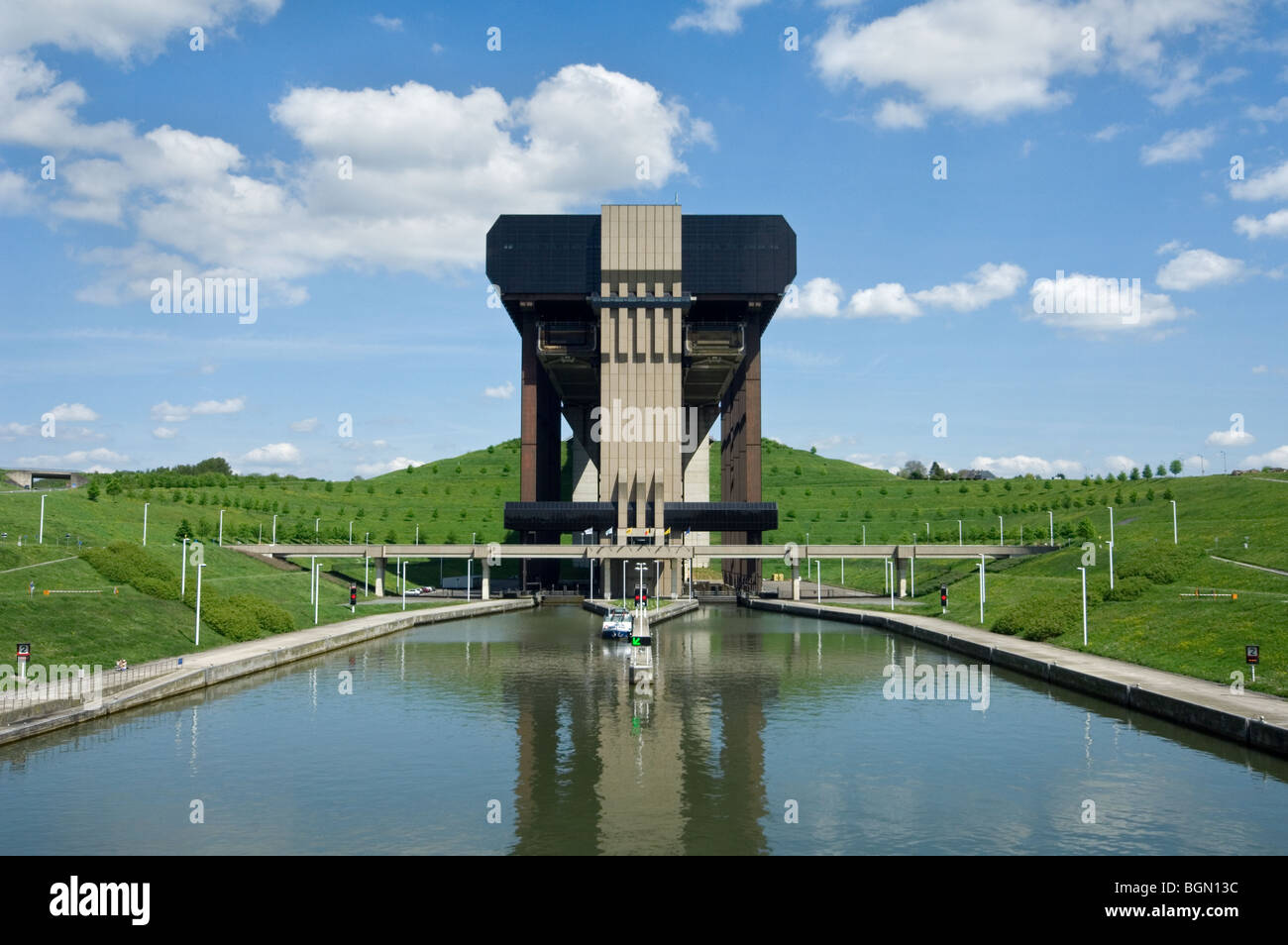270MWh BESS Project In Belgium: A Guide To Merchant Market Financing

Table of Contents
Understanding the Belgian Energy Market Landscape and its Impact on BESS Financing
Belgium's energy market is undergoing a significant transformation, driven by the European Union's ambitious renewable energy targets and a commitment to reducing carbon emissions. This shift towards renewables creates both opportunities and challenges for BESS project financing. The increasing integration of intermittent renewable sources like solar and wind power necessitates flexible energy storage solutions to ensure grid stability and reliability. This is where BESS projects, like the planned 270MWh system, play a crucial role.
The Belgian government has implemented several policies and regulations to support the growth of renewable energy and energy storage. These include:
- Incentives for renewable energy integration: Feed-in tariffs and tax breaks are designed to encourage the deployment of renewable energy sources.
- Growing demand for grid stability services: The Belgian grid operator is actively seeking solutions to manage grid fluctuations caused by intermittent renewable energy generation, creating a market for BESS services.
- Regulatory hurdles and approval processes: While supportive of renewable energy, navigating the regulatory landscape and obtaining necessary permits for large-scale BESS projects can be time-consuming. This requires careful planning and engagement with relevant authorities.
The existing grid infrastructure in Belgium is being upgraded to accommodate the increasing capacity of renewable energy sources and the deployment of large-scale BESS projects. However, capacity constraints and grid connection challenges remain important considerations for project developers seeking merchant market financing for BESS projects.
Key Considerations for Merchant Market Financing of BESS Projects
Merchant market financing for BESS projects differs significantly from other financing models, such as those supported by long-term power purchase agreements (PPAs). In the merchant market, project revenue is derived from selling energy and ancillary services into the wholesale electricity market. This creates both opportunities and substantial risks.
Securing financing in the merchant market hinges critically on robust revenue projections and forecasting. Lenders require detailed financial models demonstrating the project's ability to generate sufficient cash flow to cover debt service and provide a reasonable return on investment. This necessitates:
- Detailed financial modeling: This must account for energy price volatility, market demand fluctuations, and potential operational challenges.
- Risk mitigation strategies: Strategies to manage price volatility, such as hedging mechanisms, are crucial to demonstrating financial viability.
- Due diligence and creditworthiness: Thorough due diligence on the project's technical and commercial aspects is essential to secure financing. The creditworthiness of the project sponsor is also a key factor.
- Negotiating favorable terms with lenders: Experience in negotiating with lenders and structuring financing agreements is crucial for securing optimal terms.
Power purchase agreements (PPAs) and other revenue streams can significantly enhance the attractiveness of a BESS project to lenders. However, even with PPAs, the merchant market component introduces inherent risk, primarily from market price volatility and uncertainty.
Exploring Financing Options for a 270MWh BESS Project in Belgium
Financing a 270MWh BESS project requires a diversified approach, potentially utilizing a combination of debt and equity financing:
- Debt financing: This can include bank loans, corporate bonds, and potentially green bonds specifically designed for sustainable energy projects. Securing bank loans requires a strong project proposal and demonstration of robust financial performance.
- Equity financing: Private equity investors, venture capital funds, and other specialized BESS investment funds are potential sources of equity. This can be a crucial component for larger projects, reducing the reliance on debt.
- Blended finance: Combining debt and equity financing can optimize the capital structure and reduce reliance on a single financing source. Government grants and subsidies specifically aimed at renewable energy and energy storage projects can also be leveraged to reduce the project's overall cost and enhance its appeal to lenders.
Specialized BESS financing providers and investment funds are increasingly active in the market, offering expertise in the technical and financial aspects of these projects. They often possess deep market knowledge and are well-positioned to assess the risk and return profile of such large-scale investments.
Case Studies and Best Practices in BESS Merchant Market Financing
Several successful case studies of large-scale BESS projects financed in similar markets illustrate the importance of careful planning and risk management. Best practices include:
- Lessons learned from previous projects: Analyzing past successes and failures is vital for identifying potential pitfalls and improving project structuring.
- Successful negotiation strategies: Experience in negotiating with lenders, investors, and off-takers is crucial to securing favorable terms.
- Key performance indicators (KPIs) for BESS projects: Defining and tracking relevant KPIs from the outset facilitates performance monitoring and helps to demonstrate value to stakeholders and investors.
Selecting experienced legal and financial advisors is paramount for navigating the complexities of merchant market financing for BESS projects. These advisors provide essential guidance on project structuring, regulatory compliance, and risk mitigation strategies.
Conclusion
This guide has provided an overview of the key considerations for securing merchant market financing for a 270MWh BESS project in Belgium. Navigating this complex landscape requires a comprehensive understanding of the Belgian energy market, meticulous financial planning, and the ability to mitigate inherent risks. Success hinges on securing favorable financing terms and developing robust revenue streams. The increasing demand for grid stability services and the supportive regulatory environment in Belgium present a significant opportunity for BESS projects.
Are you ready to explore the possibilities of merchant market financing for your BESS project? Contact us today to discuss your specific needs and learn how we can help you secure the funding necessary to bring your project to fruition. We specialize in merchant market financing for BESS projects and can provide the expert guidance you need to succeed.

Featured Posts
-
 Singapore Election High Stakes For The Peoples Action Party
May 04, 2025
Singapore Election High Stakes For The Peoples Action Party
May 04, 2025 -
 Aritzia Remains Steady No Price Hikes Despite Trump Tariffs
May 04, 2025
Aritzia Remains Steady No Price Hikes Despite Trump Tariffs
May 04, 2025 -
 Au Roeulx Le Plus Grand Parc De Batteries D Eneco En Belgique Ouvre Ses Portes
May 04, 2025
Au Roeulx Le Plus Grand Parc De Batteries D Eneco En Belgique Ouvre Ses Portes
May 04, 2025 -
 Carneys Meeting With Trump The Future Of Cusma
May 04, 2025
Carneys Meeting With Trump The Future Of Cusma
May 04, 2025 -
 Leaked Messages Reveal Deep Divisions Within Reform Party
May 04, 2025
Leaked Messages Reveal Deep Divisions Within Reform Party
May 04, 2025
Latest Posts
-
 The Cusma Negotiations Carneys Meeting With Trump And Whats At Stake
May 04, 2025
The Cusma Negotiations Carneys Meeting With Trump And Whats At Stake
May 04, 2025 -
 Trump Carney Meeting Crucial For Cusmas Future
May 04, 2025
Trump Carney Meeting Crucial For Cusmas Future
May 04, 2025 -
 Predicting The Stanley Cup Winner A Breakdown Of The Nhl Playoff Bracket
May 04, 2025
Predicting The Stanley Cup Winner A Breakdown Of The Nhl Playoff Bracket
May 04, 2025 -
 Stanley Cup Playoffs Analyzing The Matchups And Top Contenders
May 04, 2025
Stanley Cup Playoffs Analyzing The Matchups And Top Contenders
May 04, 2025 -
 Googles Advertising Business Under Threat Of U S Government Breakup
May 04, 2025
Googles Advertising Business Under Threat Of U S Government Breakup
May 04, 2025
